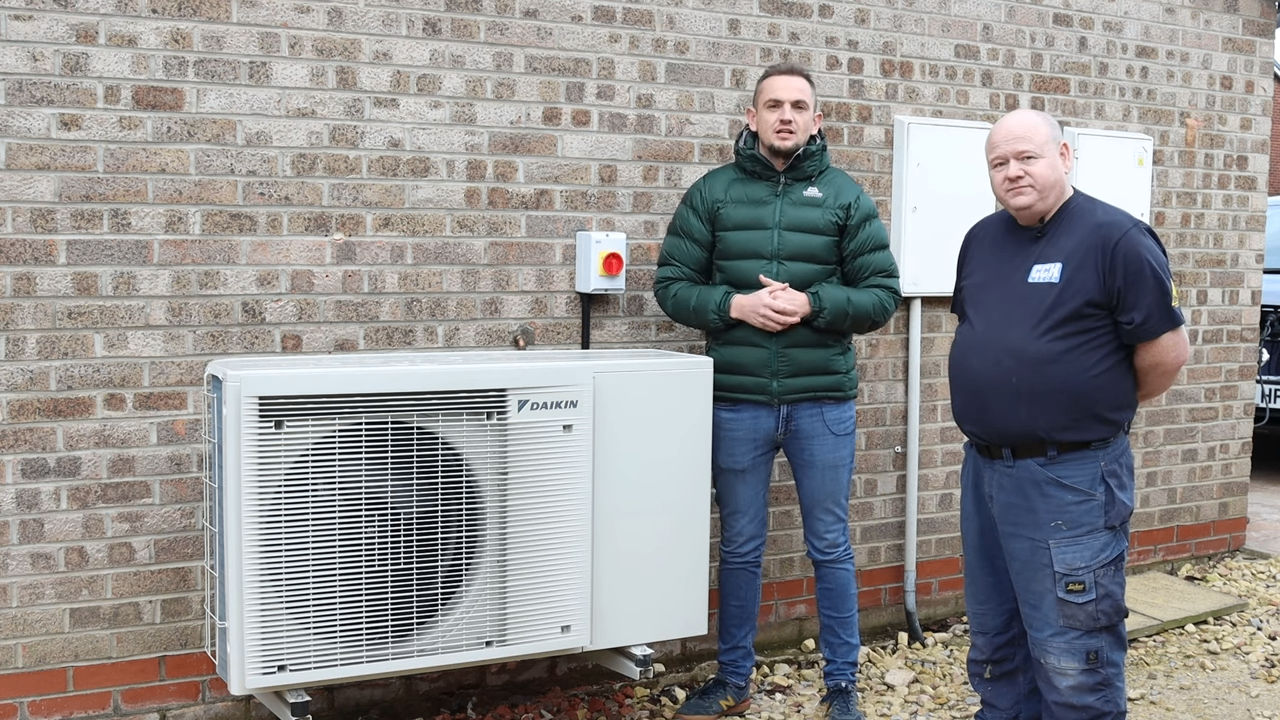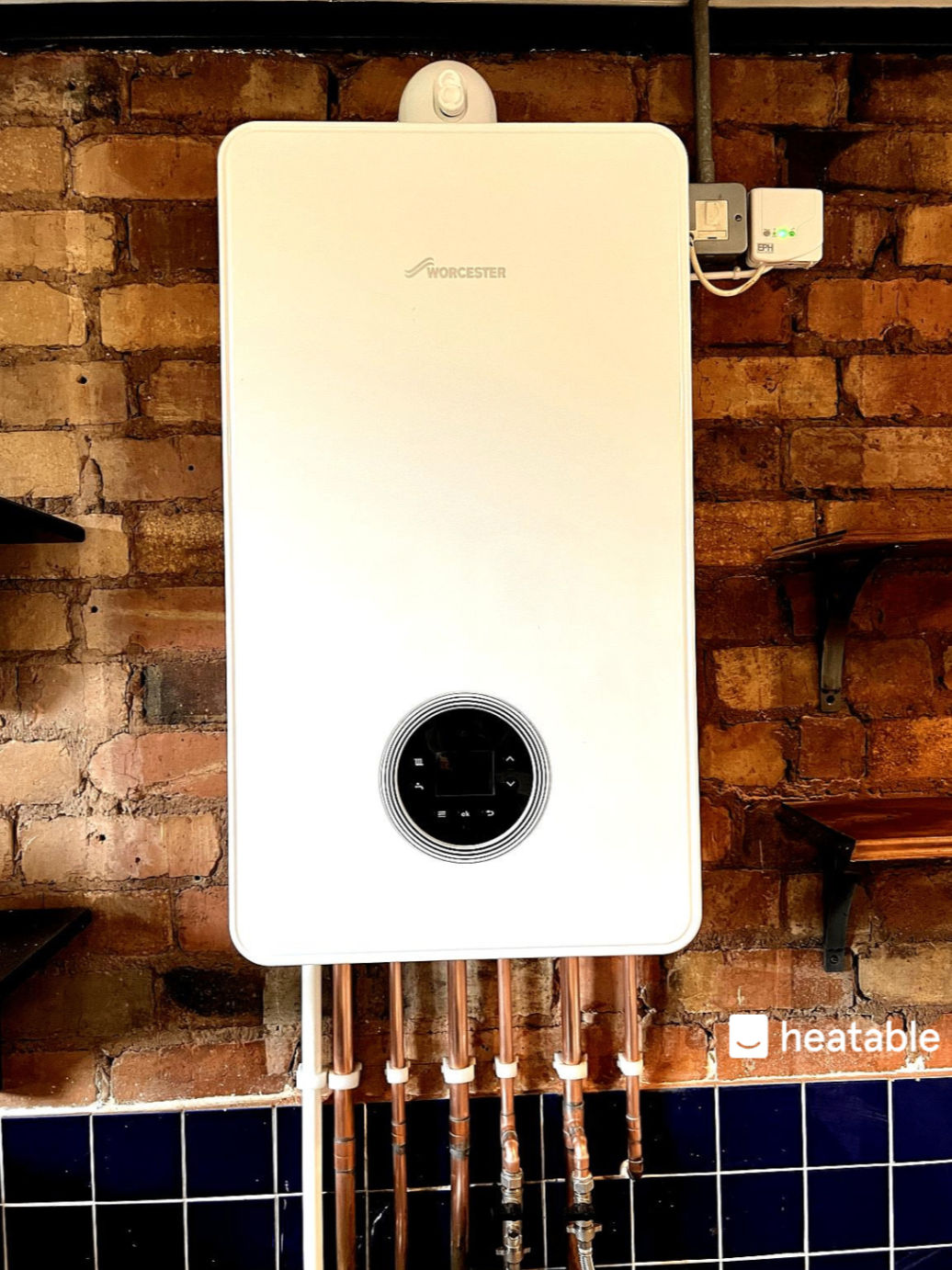You have a yummy oil boiler, but will the government rip it out? Oil boilers to be banned.
If you live in a rural location, there’s a good chance you’re not connected to the gas grid and rely on an oil boiler (or potentially an LPG boiler) for your heating needs.
So any rumblings of a potential oil boiler ban might be pretty concerning for households that rely on one.
Fret not though, because we’re covering everything you need to know about it and we’ll start by confirming that oil boilers won’t be outright banned, but they will be phased out.
If you’re ready to drop your old oil boiler and make the switch to a greener heat pump, we can help. Get a heat pump quote today from our trusted partners over at Heat Geek!
Key Points:
The UK government wants to phase out around 80% of oil boilers by 2035.
Green alternatives such as heat pumps can be a good replacement.
Around 1.5 million UK households rely on oil boilers
An oil boiler emits four to six tonnes of CO2 each year
The main grant for replacing an oil boiler is the Boiler Upgrade Scheme.
If you have an old, inefficient oil boiler, it’s definitely worth considering a new boiler, especially if you don’t qualify for a government grant.
What Is the Oil Boiler Ban?
The oil boiler ban was originally planned by the UK government to ban new oil boiler installations in off-grid homes by 2026. As it stands now, the plan is instead to phase out roughly 80% of oil boilers by 2035.
This is similar to the so-called gas boiler ban, which aims to stop gas boilers being installed in new homes from 2025 onwards.
In the wider scheme of things, the phasing out of oil boilers is part of the UK’s push to reach net-zero emissions, which it hopes to do so by 2050. Unfortunately, oil boilers are big polluters, emitting up to four to six tonnes of CO2 per household (that’s about twice as much as an ordinary gas boiler).
What Does This Mean for Off-grid Households?
Approximately 6% of UK households currently rely on oil boilers to keep warm and heat their water. In other words, the oil boiler phase-out will affect roughly 1.5 million households, typically those in rural environments far away from the national gas grid.
These households will no longer be able to get either a new or replacement oil boiler beyond 2035. Instead, they’ll have to find an alternative way to heat their homes. This could end up costing many rural households thousands of pounds to find an alternative to their oil boilers.
There are government incentives that could make this financial hit a little softer, such as the Boiler Upgrade Scheme (BUS), but it’s no guarantee that you’ll be eligible. We'll explain the available grants and incentives in more detail further down the page.
How Will the Environment Benefit?
The environment will directly benefit from the oil boiler phase through the inevitable reduction of carbon emissions. Oil boilers chuck out four to six tonnes of CO2 per household each year, and this number rises for larger-scale farms (where oil boilers are most likely to be used).
Older oil boilers are much less efficient than modern models too, so homes using older boilers will almost certainly have higher emissions.
When homes swap to greener alternatives, such as heat pumps, they’ll be keeping warm without burning fossil fuels (assuming the electricity to power the heat pumps is renewable).
Are There Any Oil Boiler Alternatives?
The current plan, if it goes ahead in 2035, will mean most homes with oil boilers will need to find an alternative. Honestly speaking, even if the phase-out doesn’t happen exactly as planned in 2035, boilers using fossil fuels like oil will be a thing of the past at some point before 2050.
So you could adopt an early bird approach and start thinking about getting an alternative.
And, if you can afford a greener alternative sooner, you’ll be doing the environment a solid by reducing your carbon emissions.
Let’s explore the alternatives to oil boilers:
Biomass Boilers
Cost including installation: £5,000 to £20,000
Biomass boilers are just like ordinary boilers in that they heat your home, but instead of using oil or gas, they use biomass, which is basically any organic material. Specifically, though, these boilers tend to burn wood pellets, wood chips, and logs.
They’re better for the environment than oil boilers for sure, but they’re not entirely green. Burning biomass still releases emissions — roughly 598 kg of CO2 a year — into the atmosphere, so biomass boilers aren’t a perfect solution.
Neither are they cheap. Buying a new biomass boiler could set you back up to £20,000 for the very high-end models, or around £5,000 for a standard boiler large enough to heat a three-bedroom property.
Also, you’ll spend around £950 a year on wood pellets (the most common type of fuel for biomass boilers), which is cheaper than the £1,500 or so needed to run a standard oil boiler each year, but higher than the £880 for a typical gas boiler.
Heat Pumps
Cost including installation: £7,000 to £49,000

Heat pumps are one of the most popular green alternatives to traditional boilers powered by fossil fuels. They’re much more environmentally friendly because they’re powered by electricity and only need the ambient warmth of air, water, or the ground to keep your home warm.
A heat pump is effectively carbon-neutral if it’s powered entirely by a renewable energy source too. However, despite the fact it is possible to power a heat pump with solar panels, you’ll need a large solar system to do so, and battery storage with enough capacity to run a heat pump at night.
You’ll shrink your reliance on the grid for your heating needs with such a setup, but the upfront cost for all of this can be pretty high. It’ll cost you between £7,000 and £10,000 to buy and install an air source heat pump, plus around £9,000 for a solar panel system large enough to power it. Add on £6,500 for a storage battery and you’re looking at close to £25,000 for it all.
You can reduce these costs by up to £7,500 with the Boiler Upgrade Scheme.
Heat pumps are also incredibly efficient, with most air source heat pumps reaching efficiency ratings of 300%. It’s an even more impressive 400% efficiency for ground source heat pumps, but water source heat pumps are the true efficiency champions with some installations hitting 600%. Even the most efficient oil boilers rarely climb above 93%.
Efficiency matters when it comes to heating your home because the more efficient a boiler or heat pump is at converting energy into heat, the less you need to put into it to stay warm.
Electric Boilers
Cost including installation: £1,700 to £4,500
Electric boilers are almost exactly the same as normal boilers, only they use electricity to heat your home (who could’ve seen that coming?). This makes them better for the environment, but not necessarily for your wallet, because electricity is currently more expensive than gas.
It costs 24.50 pence per kilowatt hour (kWh) for electricity and 6.24 pence per kWh for gas, so using an electric boiler to provide the same amount of heat as a gas boiler will be much more expensive.
Electric boilers also aren’t suitable for larger properties, because they typically struggle to meet the higher central heating and hot water needs.
You can combine an electric boiler with a renewable energy source such as solar panels, like you can with heat pumps, but you’ll need a solar system large enough to meet the considerable energy demands.

The image above shows a Worcester Bosch 4000 installed by the Gas Safe engineers here at Heatable. Get your free quote from us here.
Hydrogen Boilers
This is a wildcard inclusion because hydrogen boilers aren’t actually available to the public, despite many boilers being hydrogen ready. All we know for sure is that hydrogen boilers will play a part of the UK’s future energy landscape, but how key they’ll be is yet to be seen.
All this uncertainty hasn’t stopped boiler manufacturers like Worcester Bosch, Viessmann, and Baxi from experimenting with hydrogen-ready boilers. There was even a hydrogen boiler trial in Scotland, to test viability, but realistically, we won’t see hydrogen boilers for many years to come.
If ever, actually, as producing green hydrogen (hydrogen not made from fossil fuels) is currently not cost-effective.
Solar Thermal
Cost including installation: £4,000
Solar thermal panels are used to help heat water, but they are not (yet) powerful enough to replace a boiler entirely. Instead, they’re best used to supplement an existing system.
How solar thermal works is by absorbing the infrared part of sunlight and converting this into heat, which it uses to warm liquid stored in the panels. This liquid circulates through your pipes, heating cold water and filling your tank ready for use in showers or washing.
You’ll struggle to do this during the winter months when the sunshine hours are low however.
Are There Any Government Grants Available for Replacing Oil Boilers?
Yes, the UK government offers the Boiler Upgrade Scheme (BUS), which can provide up to £7,500 towards the cost of more energy efficient ways to heat your home, such as heat pumps.
The scheme launched April 2022 and there’s currently £450 million available in funding until April 2025. After this period, a further £1.5 billion in funding will be available to eligible households from April 2025 till April 2028.
If you’re eligible for the BUS, you can get:
£7,500 towards a heat pump (air source, ground source, and water source heat pumps all included)
£5,000 towards a biomass boiler
This sounds great on paper, but the reality is that barely a fraction of the 1.5 million homes who currently rely on oil boilers will get access to funding from the BUS.
Related reading:
Get a Quote for a New Boiler Today
If you’re in the market for a new boiler, you’re in the right place. We can offer a free boiler quote in minutes and you might even be able to get your boiler installed tomorrow.
If you’re aiming to get the best deal on a new boiler, consider getting a quote from us, here’s why:
Gas Safe installation within 24 hours.
Thousands of satisfied customers with an average score of 4.9 on Trustpilot, surpassing the market leader.
Which? Trusted Trader: Heatable is proudly recognised as a Which? Trusted Trader.
Price match guarantee: We will match any like-for-like cheaper quote.
Flexible payment options, including interest-free finance.
Up to 12-year guarantee on selected boilers.
Fixed price guarantee: No hidden costs.
Save your quote and decide later.
Get an instant fixed price on a new boiler, here.
To learn more about boilers, visit our advice section, check out our YouTube channel, or read customer testimonials here.
Heat Happy.






